Born into the dawn of the HIV/AIDS crisis, the millennials of the LGBTQ community grew up with television broadcasts about death, police harassment and protests in the background.
In June 1981, the U.S. Centers for Disease Control and Prevention published its first article describing cases of a rare lung infection affecting young gay men who lived in Los Angeles and had previously been healthy.
In those early phases of research and reporting, health officials would coin various names for the disease, many of which — like gay-related immunodeficiency — now reek of the ignorance and homophobia in society and the world of medicine. Similarly, the administration of former President Ronald Reagan is remembered for its lack of action surrounding the crisis.
Ultimately, according to the CDC, AIDS became a leading cause of death in young American adults in the 1980s.
But amid the tragedy, the millennial generation also brought forth many firsts.
- In 1981, Mary Morgan became the first openly lesbian judge in the U.S. when she was appointed to the San Francisco Municipal Court.
- In 1983, John Laird became one of the first gay mayors in the U.S. when he was elected in Santa Cruz, California.
- In 1987, Barney Frank became the first member of the U.S. Congress to voluntarily come out as gay.
- In the early '90s, Tom Duane became the first openly gay and openly HIV-positive person in the New York Senate.
In pop culture, millennials of the LGTBQ+ community also came into their identities during the epoch of acid-wash jeans, Madonna and Whitney Houston.
For them, the '80s and early '90s became a time for navigating realizing their sexualities and gender identities, charting new terrain sometimes in spite of the belief systems of their families, churches and communities.
The milestones of their adolescences included fears, defining delights and acceptance. Here's what it meant for them to come out and share their identity publicly, both then and now.
Dewayne Perkins: ‘I don’t think I was put on earth to force people to love me’
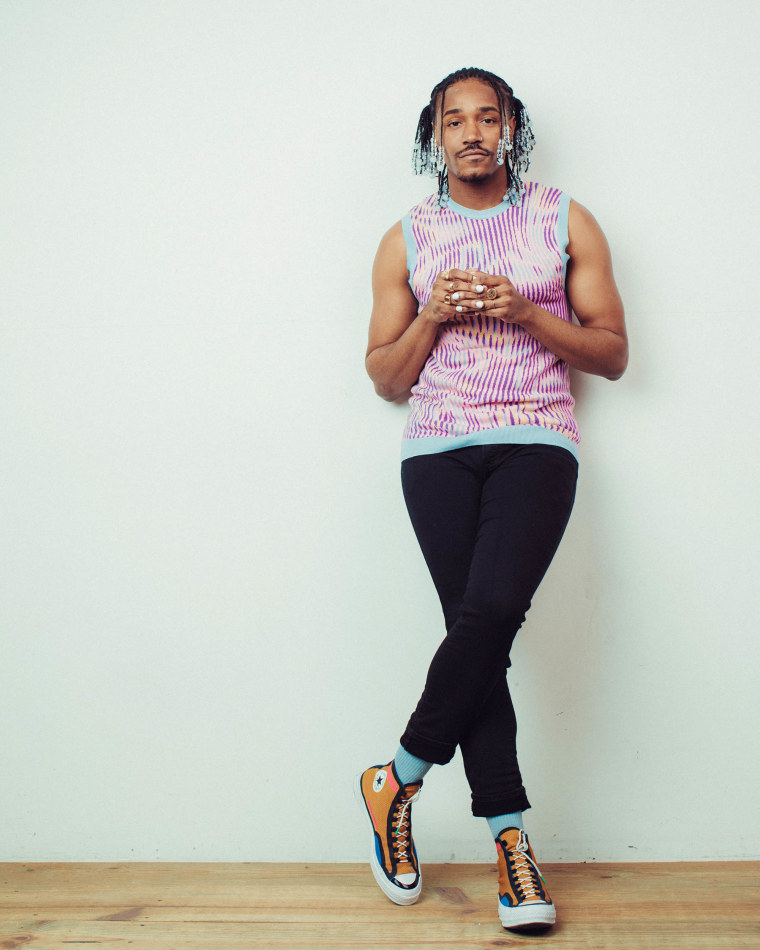
When Dewayne Perkins first came out in high school, he worried his family might disown him.
“I had absorbed so many horror stories about coming out,” the comedian, actor and writer of the new horror-comedy film, “The Blackening,” tells TODAY.com. But after texting that he was gay in a group chat with his four sisters, the response was just the opposite. If anything, it was anticlimactic.
“I was like, ‘Hey, I’m gay.’ And they were like, ‘Yeah, that makes sense’ and I was like, ‘Excuse me, um what?’”
Far from renouncing him, his sisters were unsurprised and at least one of them had already assumed he was, given his love of wearing cowboy boots in the summer. “I just like the sound of clacking,” Perkins says laughing. “So, it’s just kind of a running joke.”
Next, Perkins came out in a letter to his mother, then went to school. Soon after, she texted him saying that she loved him — no matter what. And his father?
“I forgot to tell my father,” Perkins says, adding that it wasn’t until he showed up at a family birthday party with his boyfriend that his dad learned he was gay.
“His response was, ‘It’s OK, just don’t get AIDS.’ Then I responded, ‘Yeah, you neither,’ and we just kind of looked at each other and laughed.
Though coming out might have gone better than Perkins, now 32, expected, he says it’s because he never conformed to his family’s more traditional values, bypassing the track his parents and siblings took in favor of pursuing his own dreams.
“So, me coming out and living my truth was kind of in line with the person they already knew me to be,” Perkins says.
That said, it wasn’t always easy, and Perkins says when he was younger, he remembers “trying to be straight” and “exhibit what I felt like straightness was.”
“My whole life I’ve been constantly told what a man is supposed to be and then when I came out, I didn’t have any ‘journey,’ there was no direction. So, I had the freedom to create what I wanted for my life.”
I don’t think I was put on earth to force people to love me. I think my job is to find the people who do, then continue to (build) those relationships.
Dewayne Perkins
And Perkins has never veered from his single-minded pursuit of happiness. “I just saw so many versions of people trying to fit into the box that didn’t seem happy,” he says. “These people are doing this thing that I’m being told to do, yet they’re not happy.”
Seeing that unhappiness solidified Perkins’ belief that he wanted to be comfortable in his body rather than fit into the “boxes that society keep telling me I’m supposed to fit into.” The result: he’s consciously gravitated to places and people where he feels loved, leading him to both professional and personal success.
“That’s how I’ve led my life and it has not been wrong and I have no regrets,” he says.
“I don’t think I was put on earth to force people to love me. I think my job is to find the people who do, then continue to (build) those relationships,” says Perkins. “That would be my biggest advice — knowing what love and care is and then continuously trying to find that.”
Isis King: Becoming the ‘sun’

To Isis King, “coming out” means “vocalizing who you are” to the world. Throughout her career, she’s experienced imposter syndrome, “because there were really no roles and opportunities for me.”
At times, it almost feels like she "snuck" into the industry through a back door, she tells TODAY.com.
In high school, one of her favorite shows was “America’s Next Top Model.” But being on the show was never a future she saw for herself. One, it was before her transition, and two, she’s only 5’7. But after appearing in the 2007 MSNBC docuseries "Born in the Wrong Body: On The Edge," which focused on the experience of transgender teens, King continued her pursuit of a career in the entertainment industry.
Her big break came while she was serving as a background extra for a photoshoot. The photographer kept calling her by her “model number,” until she told him her name. He remembered it.
“You just always have to be the best because you never know — that’s my motto,” King tells TODAY.com. “So I just kept inching forward, you know, and he kept telling me to go back. I just kept inching forward because I wanted to get to the spotlight that was on the model, because, I mean, why not?”
The connections she made from that photoshoot led her to stint on “ANTM,” but when offered the opportunity, she first said no. She was living in a shelter at the time and had a steady job as a coordinator at a hair salon.
“I’m like, ‘No, they just want to use me,’” she says. “‘Let me not be silly and think that me — I just started my transition, let me just be realistic — like they couldn’t possibly want me.’”
Finally, after hearing that it was the “last time” they’d ask, she said, “yes.” In 2008, King became the first transgender woman to star in the show, before she returned in 2011.
Find your tribe, to find your safe space, to find people who are going to be supportive and protective of you as you make these decisions.
Isis King
King, now in her 30s, stars in the Prime Video series, “With Love” as Sol, which literally translates to “sun.” She’s transparent about the fact that a role like Sol is rare. After her appearance on “ANTM,” “there was nothing really happening for trans people in acting.”
“The few auditions I got for the next few years were just like, ‘prostitute no. 2,’ ‘prostitute no. 3,’ like one or two words,” King says. “I’m just like, ‘I want more than that.’”
In “With Love,” King has a series regular role, which has always been the “dream,” she says.
“When I read the script, the description of the character was, ‘Sol, it means sun," she says of her character that is a doctor. “The heart of the family. Dependable, generous, gentle, loving.’” I never see that kind of description for a trans character, ever, especially a trans person of color.”
King is also sharing some words of advice for those just starting out in their journey: Follow your gut, and follow your heart.
“Do everything with vigilance and your safety in mind,” she says. “Sometimes it’s important to map it out, to find your tribe, to find your safe space, to find people who are going to be supportive and protective of you as you make these decisions.”
Oscar Montoya: Taking off the ‘itchy sweater’
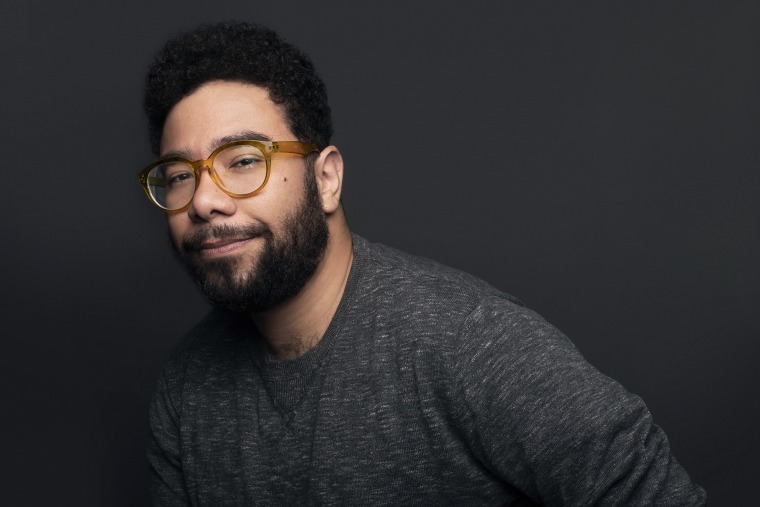
Growing up, Oscar Montoya was confused why he was called “gay” for his mannerisms. He said he had always been shy, in touch with his feelings and exuded traits traditionally associated with femininity.
“I didn’t really understand why people were saying these things about my sexual preference when I wasn’t sexually active, you know,” he tells TODAY.com. “It kind of does a number on you psychologically.”
At age 17, around the time of his junior year in high school, Montoya says he realized he had an attraction to male-identifying people but struggled with the label of “gay.” He says that figures in the media who identified as gay, didn't feel “like a real person.”
“The things that I’ve seen at the time were like, ‘Will & Grace,’ and that to me felt so performative and not real, that I’m like, ‘Well, I’m not like that, so I can’t possibly be gay,’” he says.
Growing up queer involves existing “in a world that does not welcome you,” Montoya explains.
“You sort of live a very itchy life,” he says. “It’s like wearing a very uncomfortable itchy, sweater in the summertime. You’re wearing it because you have to, because everyone’s told you you have to wear this sweater. But the entire time you’re uncomfortable and it just doesn’t feel right.”
It’s a powerful, even political act, he says, because once you dare to take off the sweater, someone else might be watching and thinking, “I didn’t think that was possible.”
The people that raised me, that have seen me grow up, couldn’t accept my simple truth, so it just made me really focus on the magic of found family.
Oscar Montoya
But the very definition of “coming out” has changed greatly, he says. He says it's not just a "one time thing," as there's sexual preference, gender identity and other expressions. But in the ‘90s, he says it was associated with a “big, declarative statement.”
“It was like Ellen being like, ‘I’m gay!’ And that was that,” he says.
When Montoya came out, he felt “absolute euphoria” because of the acceptance of his friends. But “shame, guilt, regret” followed when he told his family.
“The people that raised me, that have seen me grow up, couldn’t accept my simple truth, so it just made me really focus on the magic of found family,” he says.
Finding community also meant finding himself in media, first through the 2005 show “Noah’s Arc,” which followed the lives of four queer Black men looking for love in West Hollywood.
“I saw that, and I was like, ‘Oh my gosh, first of all, I didn’t know people of color could be gay, like what?’” he says.
He then remembers being told he reminded someone of Rickie from “My So-Called Life,” a young teen of color who was proudly out while a high school student.
“This is someone also taking off their sweater. That was it for me,” he says. “And that gave me so much power, and I felt so powerful because I didn’t feel alone.”
Montoya currently stars as Richie in the HBO comedy series “Minx.” Richie is a gay, Latino photographer in 1970s Los Angeles, a power player and rising star in his industry. He says the role feels “revolutionary.”
“I feel so connected to my history, my past, the gay LA culture of the ‘70s, in a way that I never expected to before I took this role,” he says. “Gay POCs existed in the ‘70s. History tends to erase that but we were making moves. We were huge leaders, pillars of our community and active members of our community.”
“To me, Richie is such a godsend,” he adds.
Zack Ament: ‘My biggest strength’
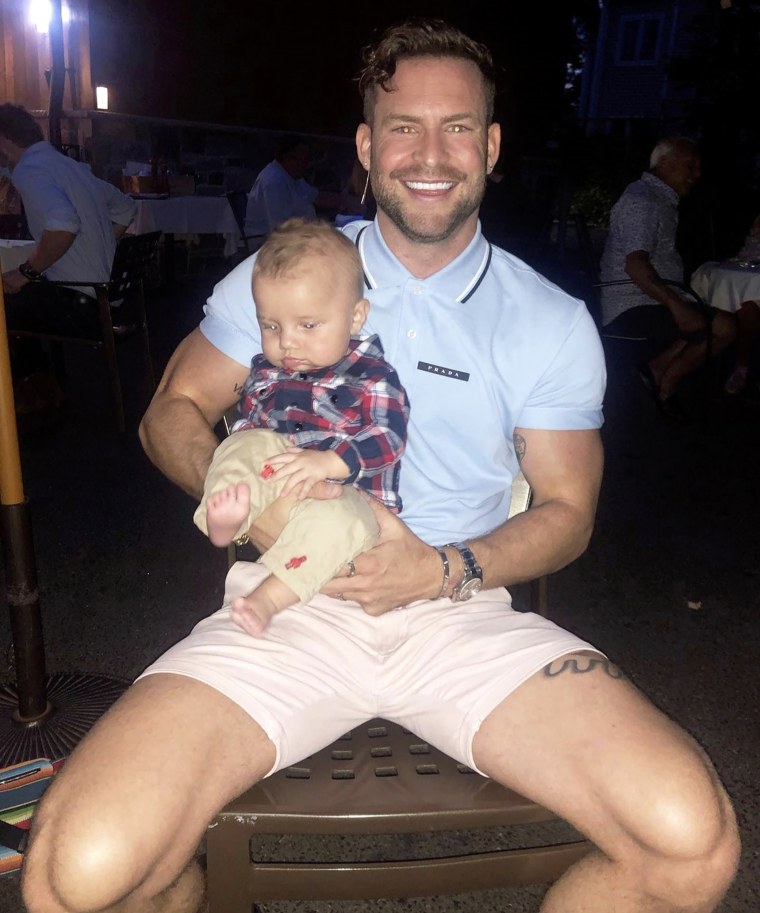
Zack Ament, Co-CEO of Westwind Recovery, a behavioral health treatment center in Los Angeles, California tells TODAY.com that his coming out story goes hand-in-hand with his recovery journey.
When he was a teenager, Ament, 33, became addicted to drugs and alcohol, and it was also during that time that he realized he was gay.
“It was Los Angeles in the ‘90s, and things seemed to be very liberal around me, so I didn’t have many role models to look up to who were gay,” he says. “Lots of gay figures around me, like people on TV or movies, were normally cast as the comedic figures. And I figured that I would have to keep my identity a secret.”
By hiding his sexual orientation from the world, Ament, who is also the CEO of Second Chance Mission, says he began to feel “isolated” from his family and friends and the only thing that would help him feel better was doing his drug of choice, which was a mix of alcohol, cocaine and opiates.
It wasn’t until he came out as gay at a treatment center that he finally started to heal.
“My recovery finally happened and it skyrocketed,” he says, referring to his ability to now stay sober. “I was working very closely with a therapist at that treatment center, who was Mormon... and together we kind of learned what it meant to be gay. My therapist overcame some of his beliefs and stigma on what it meant to be homosexual. And I got to overcome my fears of telling my parents and living in this world authentically.”
You need to live life authentically or else you’re not going to be giving the world what you were put on this world to get.
Zack Ament
Once Ament told his parents, he says they supported him in every way they possibly could. However, their “biggest concern” for him was knowing that he would have to live a “more difficult life than as someone who identifies as being straight.”
“I think that was a very real fear for them,” he says. “But, since then, being gay has become my biggest strength.”
Ament is also a proud father of one to son, Justin, affectionally nicknamed Koa, whom he shares with his late husband, Justin Wells. When asked what he wants Koa to learn from his coming out story, Ament says he wants Koa to know that “you have to be fearless in whatever you do.”
“You need to live life authentically or else you’re not going to be giving the world what you were put on this world to get,” he says.
‘I want more than that.’”
Ayesha Harris: 'A liberating moment'
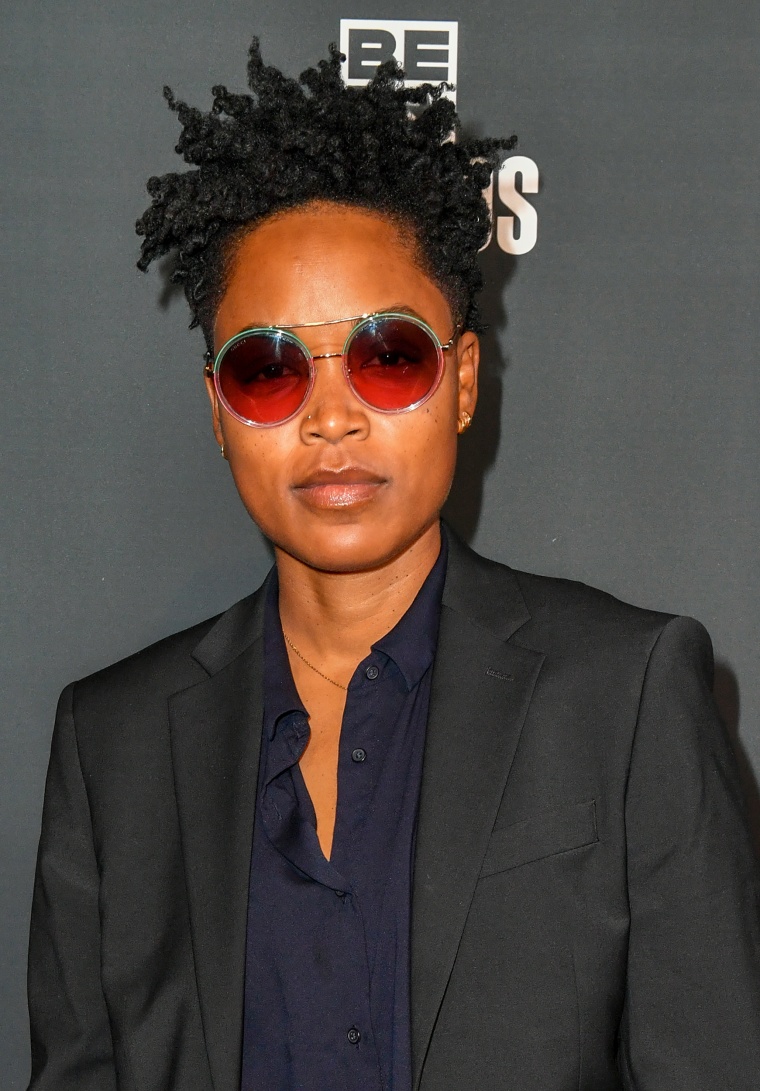
December 13, 1999.
It’s not hard for Ayesha Harris to name the exact date she came out to her parents. “As a ‘90s teenager, that was a big deal. I wrote it down,” she says.
Harris came out at 19 and calls the experience “empowering,” a “release of baggage.” She had fallen in love, and the new relationship prompted her to share her identity with her parents.
Part of her didn’t want to do it. “You wish that you could just live your life and say, ‘This is my girlfriend, my partner, my whomever,” she says.
But ultimately the conversation was “such a liberating moment.” She says, I remember going back to my room and dancing. I turned the music on and started to dance. I was in love at the time. I remember calling her and telling her and us being so excited. It was this moment that was going to happen.”
As a ‘90s teenager, (coming out) was a big deal. I wrote it down.
Ayesha Harris
Harris says she was “lucky” that her mom accepted her with open arms. “Her acceptance and love was the foundation of everything,” she says.
It took her father, a religious Muslim man, longer to come around. They weren’t on speaking terms for a year. “I stayed firm, but in his firmness he realized he would lose his daughter. He came around rather quickly,” she says. Today, she calls her dad her “best friend,” and her late mom “her everything.”
“I was able to see both sides and blossom out of it. I’m grateful for the experience,” she says.
Harris recently had supporting roles in “Daisy Jones and the Six” and Netflix’s “Glamorous,” playing queer characters in both. She always wanted to be an actor, but ran a barber shop for years to manage the ebbs and flows of being an entertainer.
She says meeting her partner, who is also an actor, was a turning point, as was seeing expanding entertainment opportunities. “Seeing the emergence of all of these queer shows coming out with more regularity — I was like, ‘Wait a minute. This might be my time to jump back in.’”
Justin Simien: Turning 'my life into art'
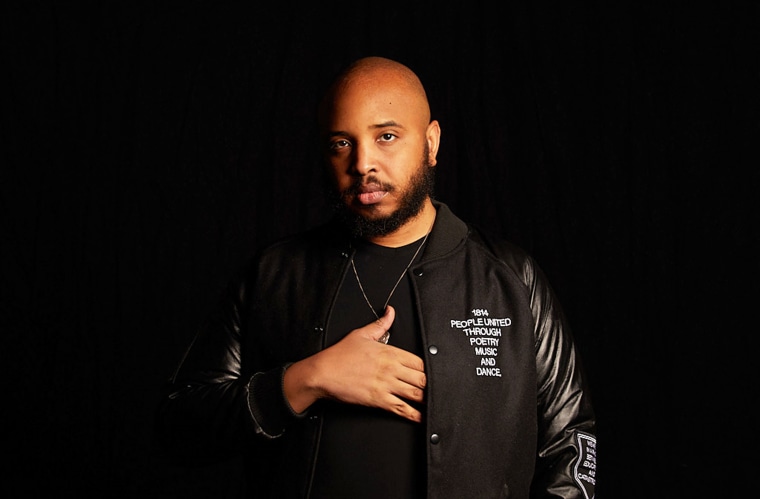
Some coming-out moments are planned out. Justin Simien’s was blurted out.
The “Dear White People” creator said the moment happened the night before prom. He was talking to his mom about the friend he was taking as a date. Another classmate was “really into him,” but he was dodging her affection, even though she was “really sweet.”
“We were at the top of our lungs. My mom was pushing me, ‘Why didn’t you take her? I don’t understand.’ And I was like, ‘Because I’m gay!’ It was very dramatic. I don’t think I did jazz hands but it felt jazz hands-y,” Simien says.
He says the conversation had to take place a few more times: “There was the wish that each time I came back from college something had changed, but it absolutely had not.”
I remember walking into a new room and everyone knowing.
Justin Simien
When he was 18 or 19, Simien decided to come out to the wider world in the most simple, efficient manner he could think of: Changing his sexual orientation on his brand-new Facebook profile.
“I didn’t want to have the Lifetime Original Movie-level conversation with 50 different people, so I just did it en masse,” Simien says. “I was just like, I don’t feel like clinking the glass. I don’t feel like pulling anyone aside. I don’t feel like belaboring this. I don’t feel like writing letters. This is probably the only piece of luck I will attribute to Facebook.
He says the effect was immediate. “I remember walking into a new room and everyone knowing,” he says.
Growing up in a religious Catholic family in Texas, Simien experienced “intense moments of inner crises” of whether he could be gay. By the time he went to college in Orange County, he was “firmly on the other side,” but then had to deal with bullying from a contingency of people that were “not OK” with the LGTBQ+ community.
Today, he says he includes moments from his life in the movies and TV shows. “I turned a lot of tragic, personally embarrassing, belittling moments in my life into art,” he says.
In one scene in “Dear White People,” the character of Lionel is locked out of his room with the intended message to mock him as a gay man. “That happened to me. I remember feeling so small. I took that moment and put it in a big-ass screen. Suddenly it wasn’t this stain. It was this release. And getting to hear from people who said that happened to them, too — it’s what it’s all about.”
TODAY.com is exploring what coming out means and how it’s changed from the perspective of members of the LGBTQ+ community across generations. In addition to millennials, read what Baby Boomers, Gen X and Gen Z have to say.



